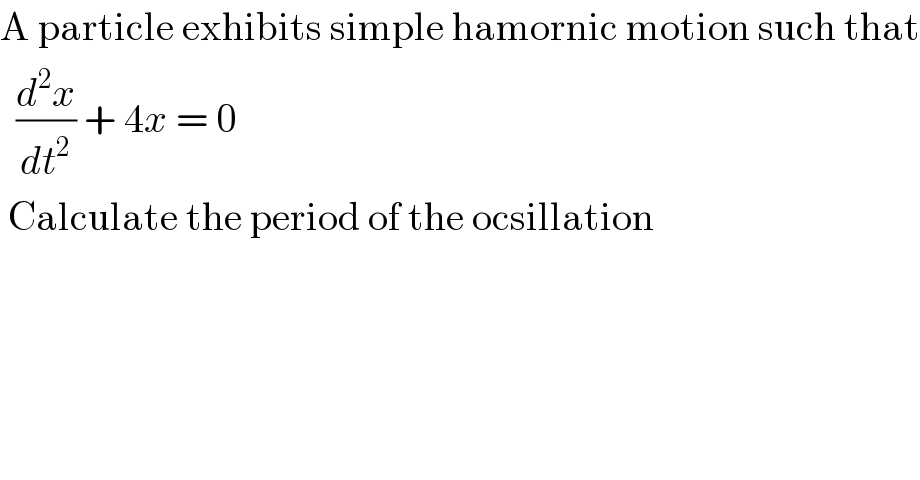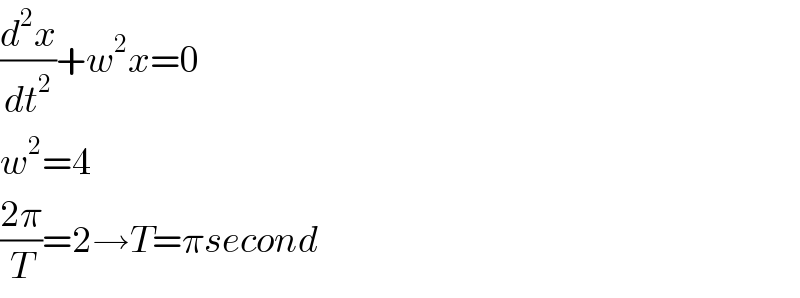
Question Number 87752 by Rio Michael last updated on 06/Apr/20

$$\mathrm{A}\:\mathrm{particle}\:\mathrm{exhibits}\:\mathrm{simple}\:\mathrm{hamornic}\:\mathrm{motion}\:\mathrm{such}\:\mathrm{that} \\ $$$$\:\:\frac{{d}^{\mathrm{2}} {x}}{{dt}^{\mathrm{2}} }\:+\:\mathrm{4}{x}\:=\:\mathrm{0} \\ $$$$\:\mathrm{Calculate}\:\mathrm{the}\:\mathrm{period}\:\mathrm{of}\:\mathrm{the}\:\mathrm{ocsillation}\: \\ $$
Answered by TANMAY PANACEA. last updated on 06/Apr/20

$$\frac{{d}^{\mathrm{2}} {x}}{{dt}^{\mathrm{2}} }+{w}^{\mathrm{2}} {x}=\mathrm{0} \\ $$$${w}^{\mathrm{2}} =\mathrm{4} \\ $$$$\frac{\mathrm{2}\pi}{{T}}=\mathrm{2}\rightarrow{T}=\pi{second} \\ $$
Commented by Rio Michael last updated on 06/Apr/20

$$\mathrm{thanks}\:\mathrm{sir},\mathrm{please}\:\mathrm{attempt}\:\mathrm{the}\:\mathrm{question}\:\mathrm{above} \\ $$
